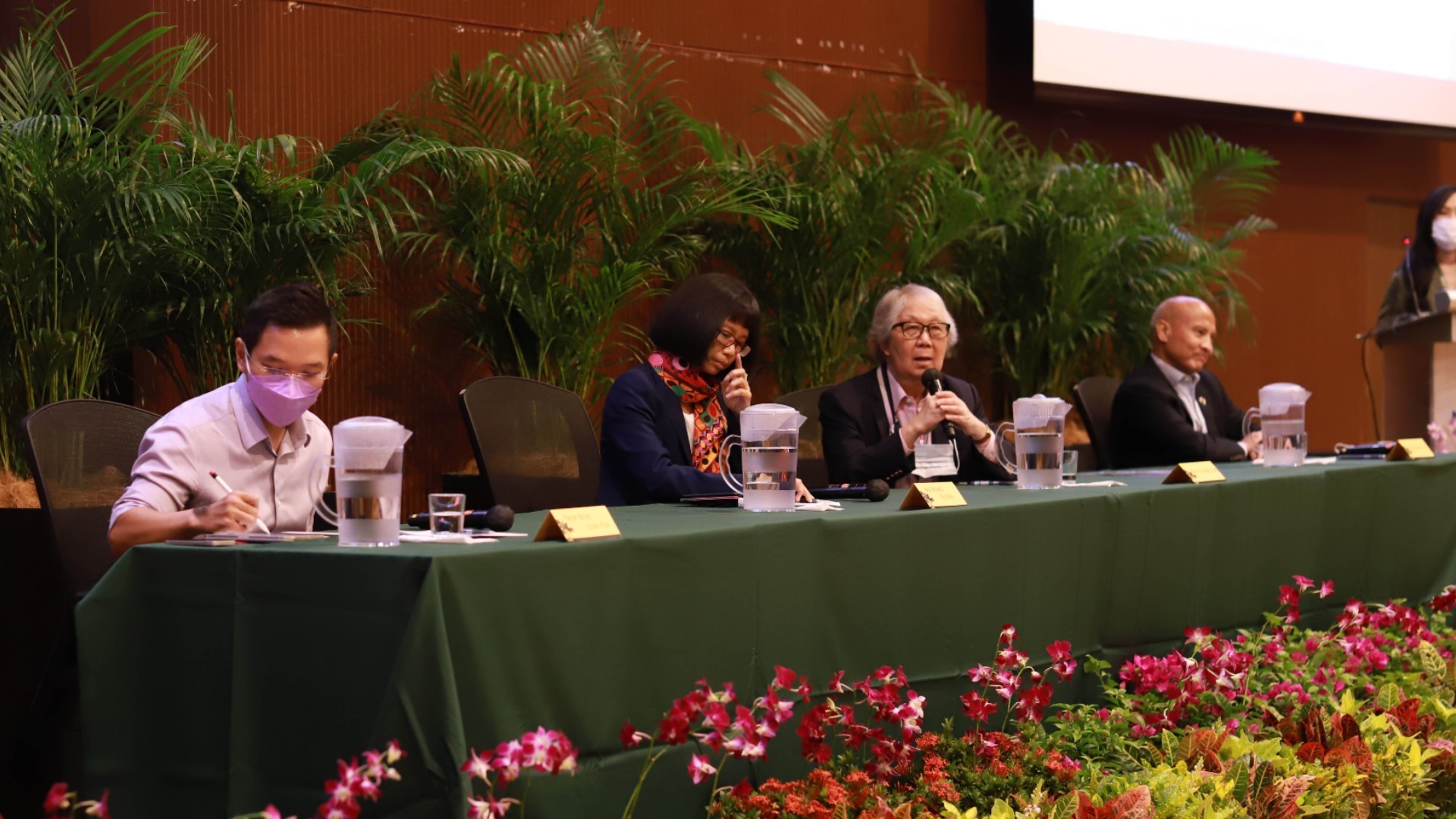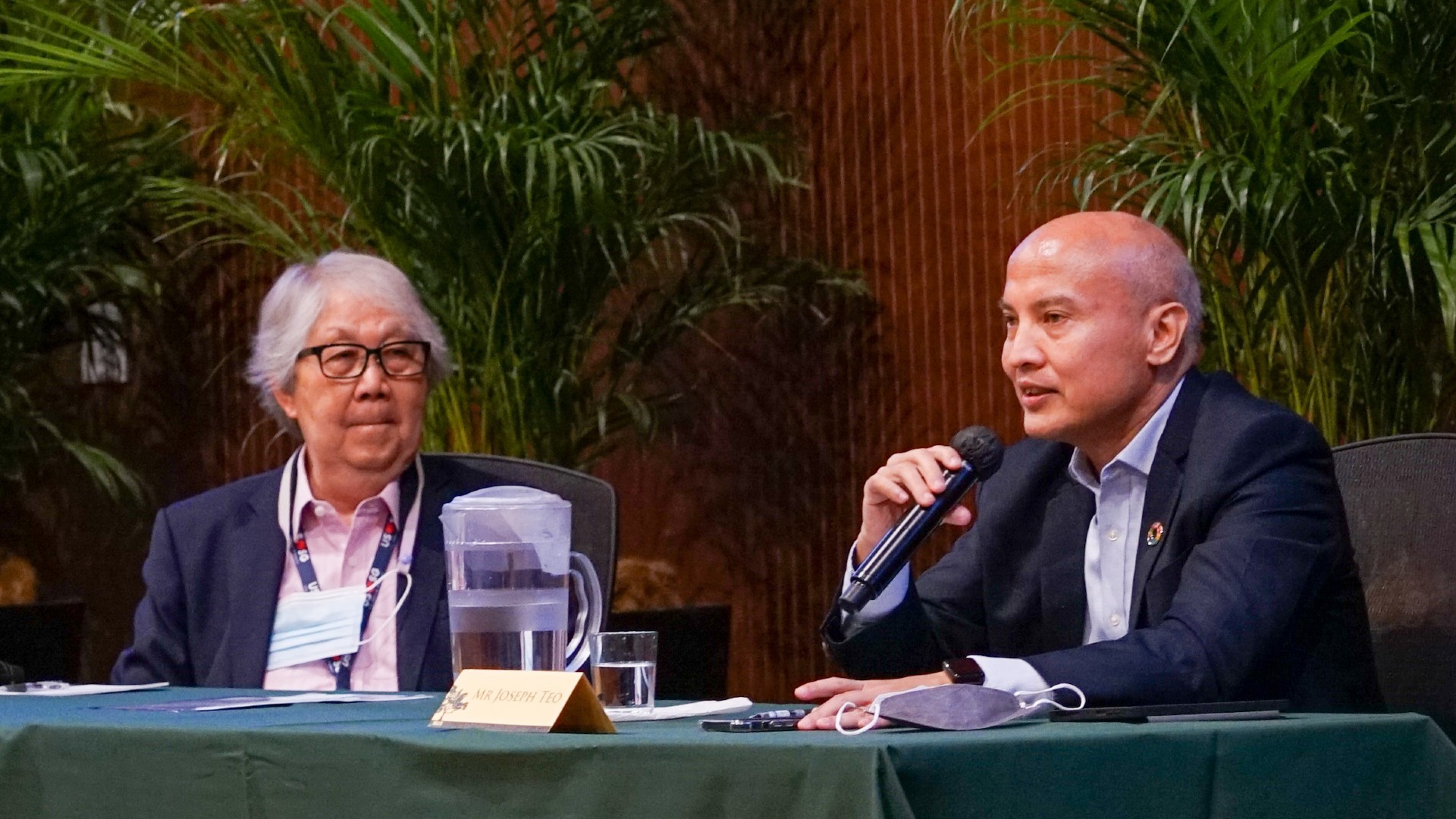The marathon race to net-zero: How Singapore and the world are faring
A business leader, diplomat and scientist discuss Singapore’s role in the fight against climate change and how it relates to COP26, the Glasgow summit that raised the bar for climate goals worldwide.

Ice and snow stretched on as far as Ms Wong Su-Yen’s eyes could see. A vast, brooding silence loomed, broken only by the sounds of her boots pounding on ice and the laboured breathing of fellow participants in the Polar Circle Marathon held in Greenland.
As the avid runner savoured her -15 °C journey past glacier tongues and moraine landscapes, her mind was also on the receding Greenland Ice Sheet, recalling the alarming photos shared by a local on how far the glaciers had retreated over the last two decades.
The timing was uncanny. It was October 31, 2021, and nearly 3,000km away across the Norwegian Sea in Glasgow, another race was just starting – the 26th UN Climate Change Conference of the Parties (COP26) that signalled the world’s marathon efforts to get to net-zero emissions.
Ms Wong’s arctic experience was a chilling reminder. “When we talk about the melting ice sheet and the rise in sea levels that would result, it’s not an abstraction for me,” said the Chairperson of the Singapore Institute of Directors at the Tembusu Forum on April 5, titled “COP26 and Singapore”.
The session on April 5 was the 41st iteration of the Tembusu Forum, the flagship event of NUS Tembusu College which is held twice every semester. Moderated by College Rector, Professor Tommy Koh, this edition of the forum discussed the results of COP26 and Singapore’s role to fight climate change.
Cooperation from corporates
To Ms Wong, COP26 “signals a new reality” for corporate leaders, who are expected to create value for stakeholders rather than just shareholders. This means that businesses are compelled to set solid net-zero targets or risk being left in the cold by clients and the public.
As more eco-conscious investors vote with their dollars, the pressure is on businesses to “follow the money” and go green. “Evolve or die,” was how Ms Wong put it, adding: “The shift to net-zero is the next great Industrial Revolution.”
And businesses are heeding the green call. At COP25 in 2019, fewer than 100 companies committed to being net-zero by 2050. At COP26, this number soared to about 5,000.
Singapore, staunch supporter
While Ms Wong left footprints on the arctic tundra, Mr Joseph Teo was part of a Singapore delegation that intended to make an imprint at COP26.
For Singapore’s Chief Negotiator for Climate Change at the Ministry of Sustainability and the Environment, it was the “COVID-19 COP” which came with new challenges.
With the pandemic causing COP26 to be delayed by a year, expectations were heightened. Yet, the limited informal pre-event meetings due to COVID-19 restrictions also curtailed the success of potential agreements at COP26.
“If securing an agreement at a normal COP was already difficult, doing so now under COVID-19 restrictions would be all the more difficult,” said Mr Teo.
This complicated his task of helping Ms Grace Fu, Minister for Sustainability and the Environment, in co-facilitating ministerial consultations for a divisive issue – Article 6 of the Paris Agreement. Covering the rules for the global carbon market, agreements had been at a standstill since 2015.
Eventually, with plenty of bilateral work done together with fellow co-facilitator Norway, the agreement was brought across the finishing line, affirming Singapore’s reputation as a staunch supporter of the multilateral, rules-based process.
Singapore aims to do more to meet net-zero goals despite limited renewable energy options due to its small land size. A significant move was taking the “painful decision” of raising carbon tax progressively even in a time of rising costs, said Mr Teo, with Singapore “sticking our neck out” to be the first in Southeast Asia to do so.
Nature can nurture
While Singapore has taken strides towards net-zero, the region also has a significant role to play to limit global warming, said the third and final speaker on the panel, Professor Koh Lian Pin, Director of the NUS Centre for Nature-based Climate Solutions.
This is because Southeast Asia is home to nearly 15 per cent of the world’s tropical forests, the most important ecosystem in mitigating climate change effects.
Prof Koh highlighted that protecting tropical forests can help “turn a tap off on carbon emissions”, alleviating 1.8 billion tonnes of carbon annually, a notable portion of the 36 billion tonnes emitted worldwide.
Despite the steps taken, some in the audience of 95 students remain pessimistic about Singapore’s ability to reach net-zero by mid-century.
In response, the panellists offered some optimism. Mr Teo foregrounded the fact that Singapore has piloted solutions such as laying solar panels on reservoirs and is also considering buying clean fuels from regional neighbours.
Weighing in, Prof Koh added: “Speaking from my heart, we don’t have the luxury to be pessimistic. We need all of you to be optimists because we need you, your brains and brilliance, to help Singapore come up with even better solutions to achieve our climate goal… the future belongs to you.”
Read more about what was at stake at COP26 here.




